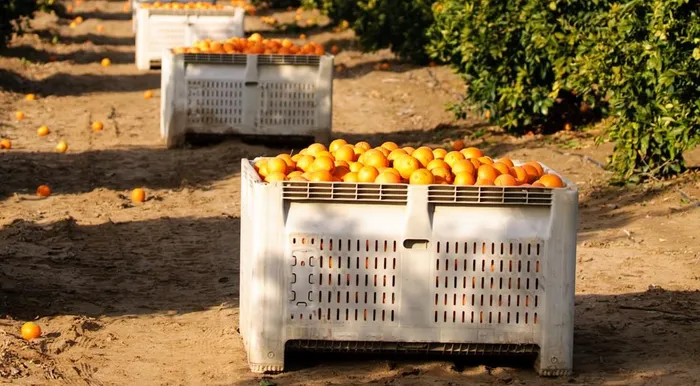KAL Group sees opportunity amid US tariff disruptions, as agricultural exports diversify
US TARIFFS

KAL Group CEO, Sean Walsh, said that while South Africa’s citrus industry — the flagship of its agricultural export portfolio — has been at the centre of the tariff debate, it remains on track for a record season in 2025.
Image: Supplied
JSE-listed agricultural, fuel and convenience retailer, KAL Group, has said that while new US tariffs may pose challenges for certain niche agricultural sectors, they are unlikely to have a major impact on South Africa’s overall agricultural recovery — and may even open new trade opportunities.
KAL Group CEO, Sean Walsh, said on Thursday while the US tariffs present hurdles for a few niche agri-sectors, recent trade data suggests a realignment in global trade flows that could benefit South African producers.
“The disruption is accelerating a shift towards new opportunities. Trade flows are starting to realign, and long-planned diversification into Asia, Africa, and Europe is gaining momentum, supported by better logistics and stronger trade partnerships,” he said.
However, Walsh said while the US is one of South Africa’s most important trading partners on the whole, when it comes to agriculture, it is not dominant.
“This is supported by trade data from a recent Agbiz research report, which shows that in the first quarter of 2025, SADC markets accounted for roughly 39% of South Africa’s agricultural exports, followed by the European Union with around 25%,” Walsh said.
“Other major destinations include the United Kingdom, China, and regional African markets (SACU). The United States accounted for only 4-6.5% of total agricultural exports over recent years.”
Walsh said that while South Africa’s citrus industry — the flagship of its agricultural export portfolio — has been at the centre of the tariff debate, it remains on track for a record season in 2025.
“Data suggests that around 4% of South Africa’s citrus exports were destined for the US in 2024, amounting to 6.58 million cartons. Within the US market for Southern Hemisphere citrus, South Africa held a share of about 13.9%, behind Chile, Peru, and Argentina.”
Walsh added that most citrus shipments were completed before the 30% US tariff took effect, and that forecasts point to record production of 180 million 15kg cartons in 2025, up from 164.6 million in 2024.
He said this would positively impact Agrimark sales, given that the business is one of the largest distributors of packaging material to the fruit export industry.
Walsh said the real effects of the US tariffs will likely become more visible from the 2026 season onward.
“Importers will naturally compare tariffs across suppliers, and while some South American and EU competitors may look more attractive in the US, that creates openings for South Africa in other markets currently served by those suppliers,” he said.
“So, rather than focusing only on the challenge, there is an opportunity to grow in alternative markets and continue diversifying our export destinations.”
Walsh added that South Africa’s long-term diversification strategy — targeting Asia, Africa and Europe — is accelerating, supported by improved logistics and strategic trade negotiations.
“Asia represents a rapidly expanding opportunity. Citrus exports to Vietnam, avocados to China, Japan, and India, and premium wine to Asian markets, combined with logistics upgrades, are already reshaping South Africa’s trade profile,” he said.
He emphasised that South Africa’s trade strategy increasingly aligns with broader continental goals under the African Continental Free Trade Area (AfCFTA) and new bilateral arrangements with India and the UK.
“While US trade negotiations continue amid uncertainty, business leaders stress the importance of diversified partnerships, infrastructure investment, and productivity. Differences in US tariffs between suppliers could shift trade patterns in the Southern Hemisphere, and that may work in South Africa’s favour,” he said.
Wandile Sihlobo, chief economist of the Agricultural Business Chamber of South Africa (Agbiz), said the European Union remains South Africa’s second-largest agricultural market, accounting for 22% of agricultural exports in the second quarter of 2025.
“Citrus, apple and pears, dates, pineapples, avocados, guavas, mangos, wine, grapes, and nuts were amongst the primary agricultural products South Africa exported to the EU in the second quarter of 2025,” Sihlobo said.
“The Americas region accounted for 7% of South Africa's agricultural exports in the second quarter of the year. The main exported products include citrus, fruit juices, wine, nuts, apricots, apples, pears, and grapes.”
Sihlobo added that the 4% share of the US in the overall South African agricultural exports is not a small value, as few specific industries are primarily involved in these agricultural exports.
BUSINESS REPORT